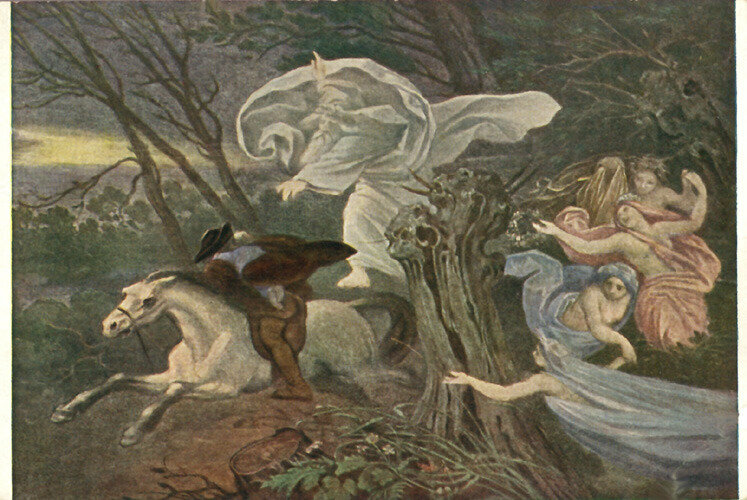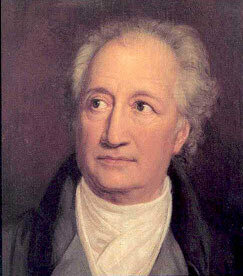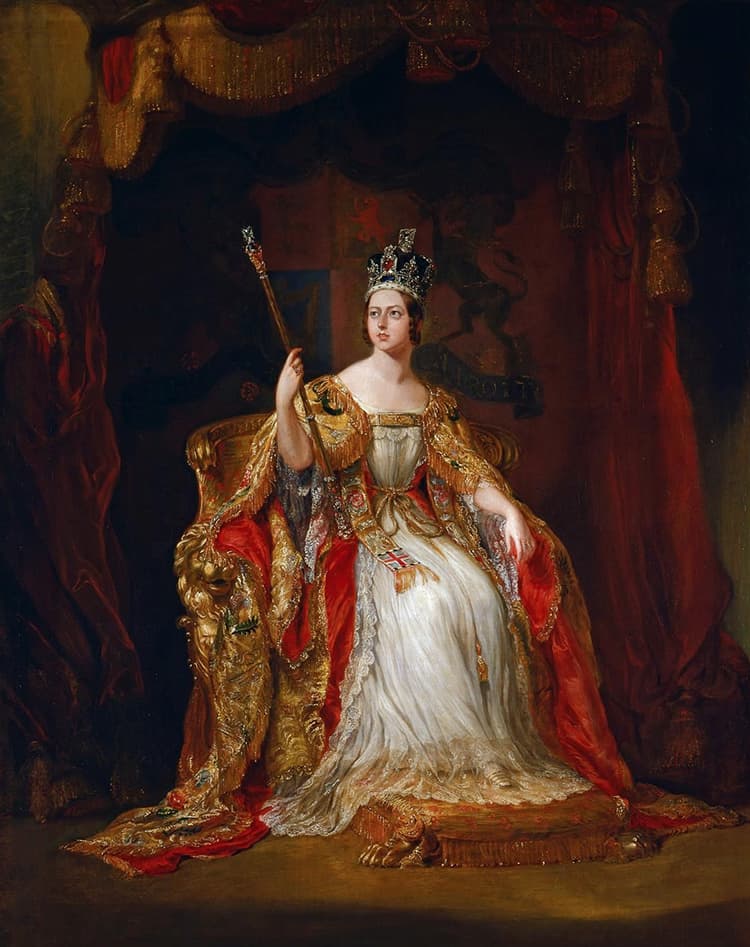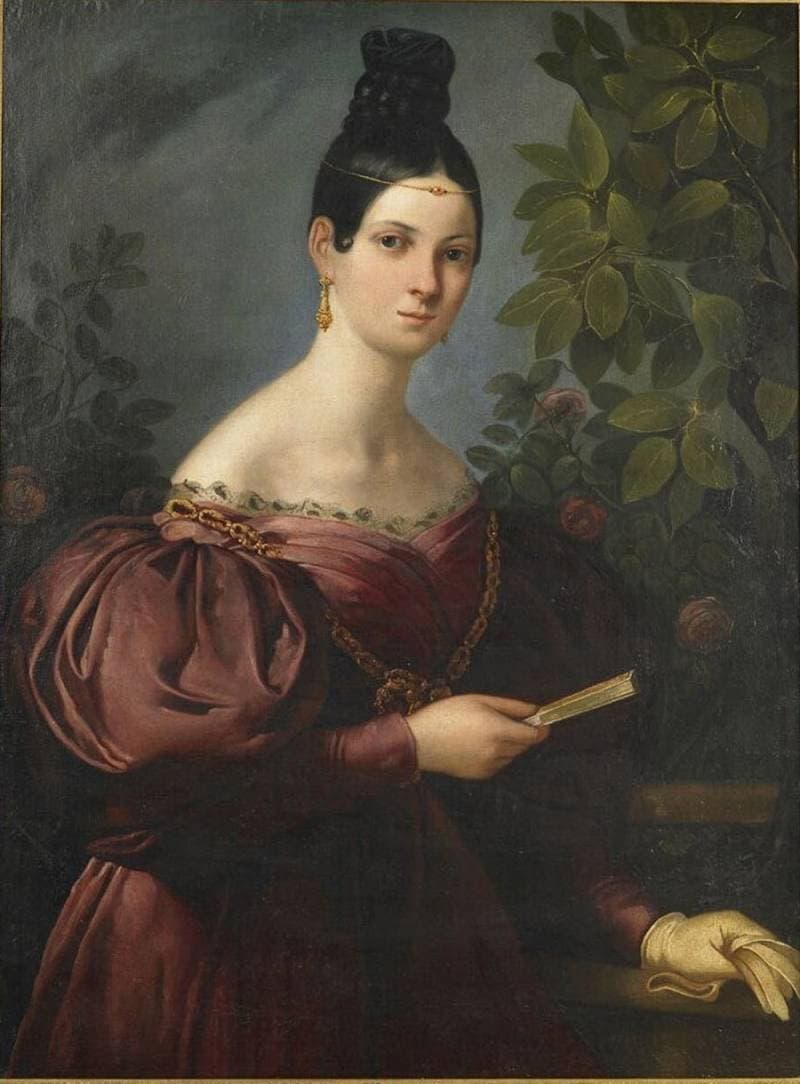
Max von Schwind: Der Erlkönig
The poet Wolfgang Goethe wrote a ballad about a child who is stolen away by a supernatural being, while his father is helpless to aid him.
‘Erlkönig,’ D. 328 (Text: Johann Wolfgang von Goethe)
| Wer reitet so spät durch Nacht und Wind? Es ist der Vater mit seinem Kind; Er hat den Knaben wohl in dem Arm, Er fasst ihn sicher, er hält ihn warm. »Mein Sohn, was birgst du so bang dein Gesicht?« – »Du liebes Kind, komm, geh mit mir! »Mein Vater, mein Vater, und hörest du nicht, “Willst, feiner Knabe, du mit mir gehn? »Mein Vater, mein Vater, und siehst du nicht dort “Ich liebe dich, mich reizt deine schöne Gestalt; Dem Vater grauset’s, er reitet geschwind, | Who’s riding so late through night, so wild? It is the father who’s holding his child; He’s tucked the boy secure in his arm, He holds him tight and keeps him warm. “My son, why hide you your face in fear?” “Sweet lovely child, come, go with me! “My father, my father, and can you not hear “Wouldst thou, fine lad, go forth with me? “My Father, my father, and can you not see “I love thee, I’m aroused by thy beautiful form; The father shudders and onward presses; |

Goethe
Credit: http://www.nndb.com/
To us, today, the most evocative setting of this poem was Franz Schubert’s 1815 version – we are swept up immediately by the urgency of the piano, playing the part of the horse carrying the father and child. Schubert is also careful to set the various voices of the characters: the secure father, the high voice of the child, and the enticing voice of the Erl King. Listen for the last line as the horse slows, stops, and the narrator gives us the final verdict: ‘tot’ (dead), followed by a final cadence in the piano.
Schubert: ‘Erlkönig’ (Fischer-Dieskau)
Schubert: ‘Erlkönig’ (Matthias Goerne)
To us, the drama inherent in the setting is a perfect realization of Goethe’s miniature horror story. For Goethe, however, this setting was too noisy – for him, the pounding piano detracted from the poetic finery. Goethe is supposed to have preferred a more ordinary setting such as that by Carl Zelter or Carl Loewe, which to our ears, after the excitement of Schubert’s setting, sound quite banal. In Zelter’s setting the piano no longer is an active participant but merely accompaniment. Rather than anticipating what will happen in the story, it placidly follows the lead of the voice.
Carl Zelter: ‘Erlkönig’ (Hans Jörg Mammel)
In Carl Loewe’s more emotional setting, we have some of the elements that we like in Schubert’s setting: the various voices that the singer assumes to portray the different characters, but again, the piano is more accompaniment than active participant. The shudder on the final word, ‘tot’ (dead), however, is really intended to make the audience shudder as well.
Carl Loewe: ‘Erlkönig (Hermann Prey)
All of these settings played on the darkest fears of any parent: the loss of child by supernatural means that they are powerless to prevent. All of this was much in keeping with the overly heightened feelings of the Romantic era.



